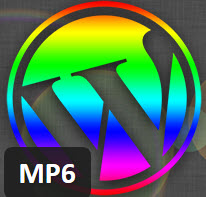 Earlier today, I read an article that took all of the hard work volunteers completed for inclusion into WordPress 3.8 and flushed it down the toilet. The main reason for their criticism is that WordPress is boring. The software is not changing enough to keep pace with competitors such as SquareSpace, Ghost, or Medium. The premise of the article is that WordPress will not be the future of web publishing within the next 10 years. However, nowhere in the article did the author explain which platform that would be and why.
Earlier today, I read an article that took all of the hard work volunteers completed for inclusion into WordPress 3.8 and flushed it down the toilet. The main reason for their criticism is that WordPress is boring. The software is not changing enough to keep pace with competitors such as SquareSpace, Ghost, or Medium. The premise of the article is that WordPress will not be the future of web publishing within the next 10 years. However, nowhere in the article did the author explain which platform that would be and why.
Experimental Plugins Are Good!
WordPress has gone through at least 3 major redesigns of the administration interface. Those were radical changes involving colors, layouts, and moving links around. Each change brought a new round of anger from those that had just gotten used to the previous design. I’ve used software that renovated the user interface and it’s not easy adjusting to change, especially when a user considers it a change for the worse. The back-end of WordPress hasn’t seen a major redesign for a while and that is one of the reasons why the MP6 experiment took place.
Instead of the typical development process of changing everything in core, MP6 was developed as a plugin alongside core so that experiments could be conducted with colors, fonts, and various other changes. I love this development process for two reasons. First, it makes it easy to help out during the development phase by using the plugin. Second, using the plugin before it gets merged into core gives me an opportunity to become familiar with the user interface changes. Despite all of the changes within MP6, the final design is really just an improvement of what we already have in WordPress 3.7.
WordPress Can’t Afford To Renovate
It’s experiments like MP6 that have me embracing iteration versus renovation. Why completely change things around if it’s not broken? In my opinion, that’s what change for the sake of change is. Sure, renovating an old kitchen into something sleek and modern is wonderful. But with WordPress being used on 20% of the web, it doesn’t make sense to push out major changes that could stop the growth of WordPress or worse, decrease market share due to so many disgruntled users. As features that would have been developed in core are starting off as plugins first, we should see changes merged into WordPress at an accelerated rate. Therefore, it’s only a matter of time before WordPress “catches up“.
I don’t have any doubt that WordPress will be celebrating its second decade of existence powering 30% of the web or more. Since iterations are small changes over time, it’s interesting to think about what WordPress may look like 10 years from now. I’d rather be part of the journey instead of getting everything all at once.

I read that article too.
One hand, controversy drives traffic – check. A common tactic I’ve noticed from him and in the world of attention economy, I don’t knock it.
Other hand, how can you publish that article without some kind of constructive criticism for the very platform that is the lifeblood of your company? And with such a strong “absolute” closing – I hope that’s his opening to a new vertical and product line, because obviously he’s not planning on being around in 10 years on this very course.
But hey, he’s more than welcome to join the show to discuss it. I’d even do a special and bring you on Jeff :)